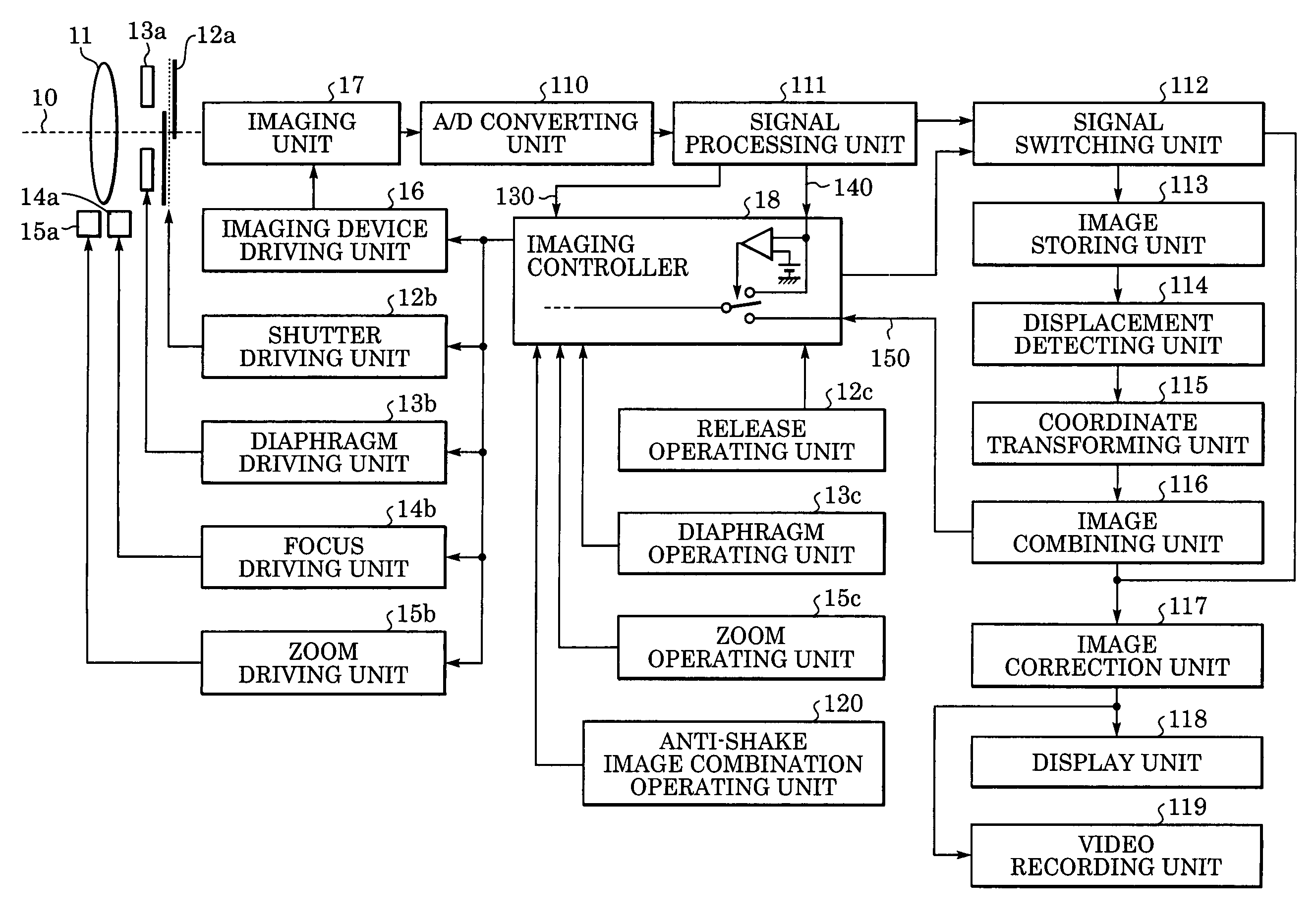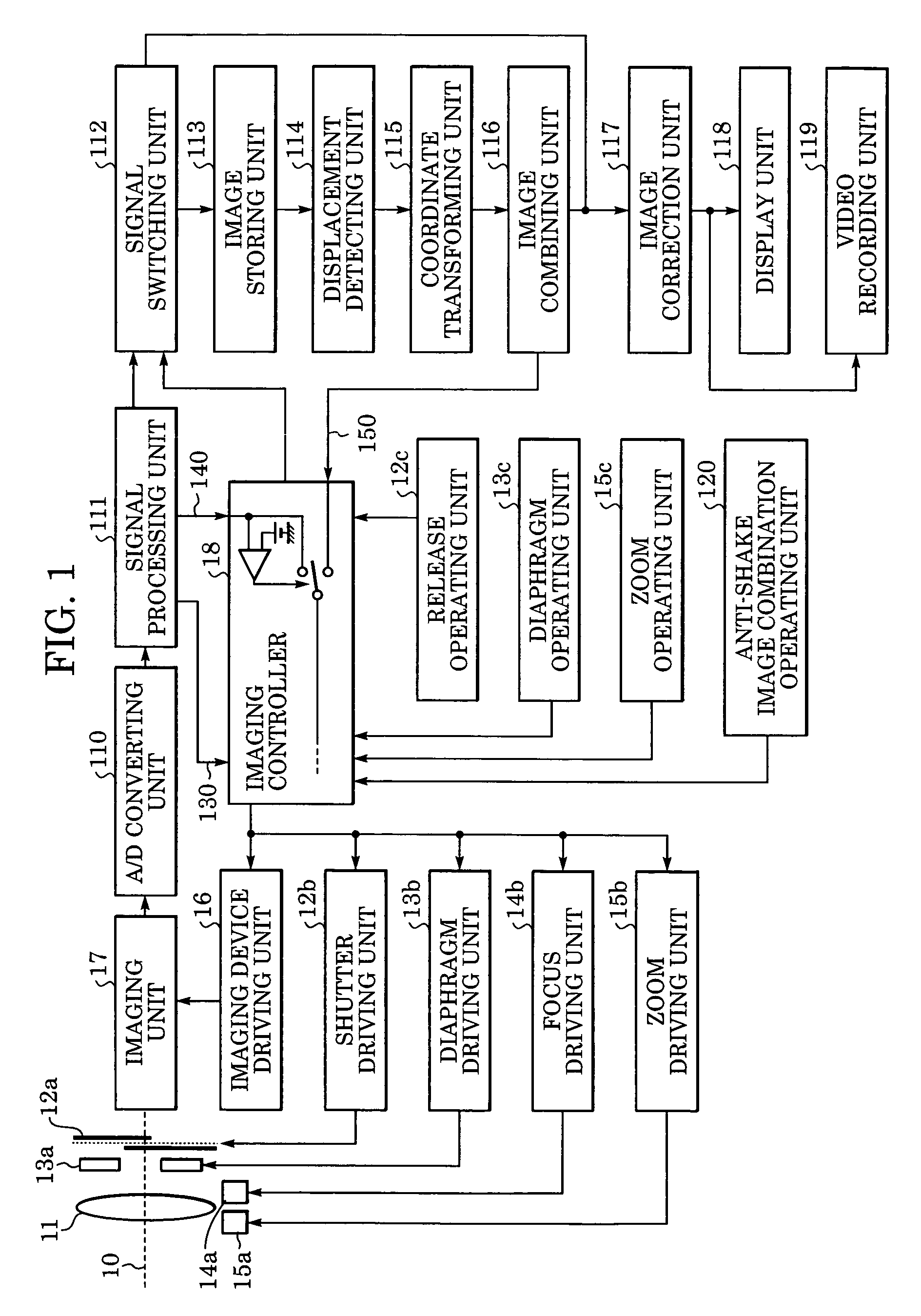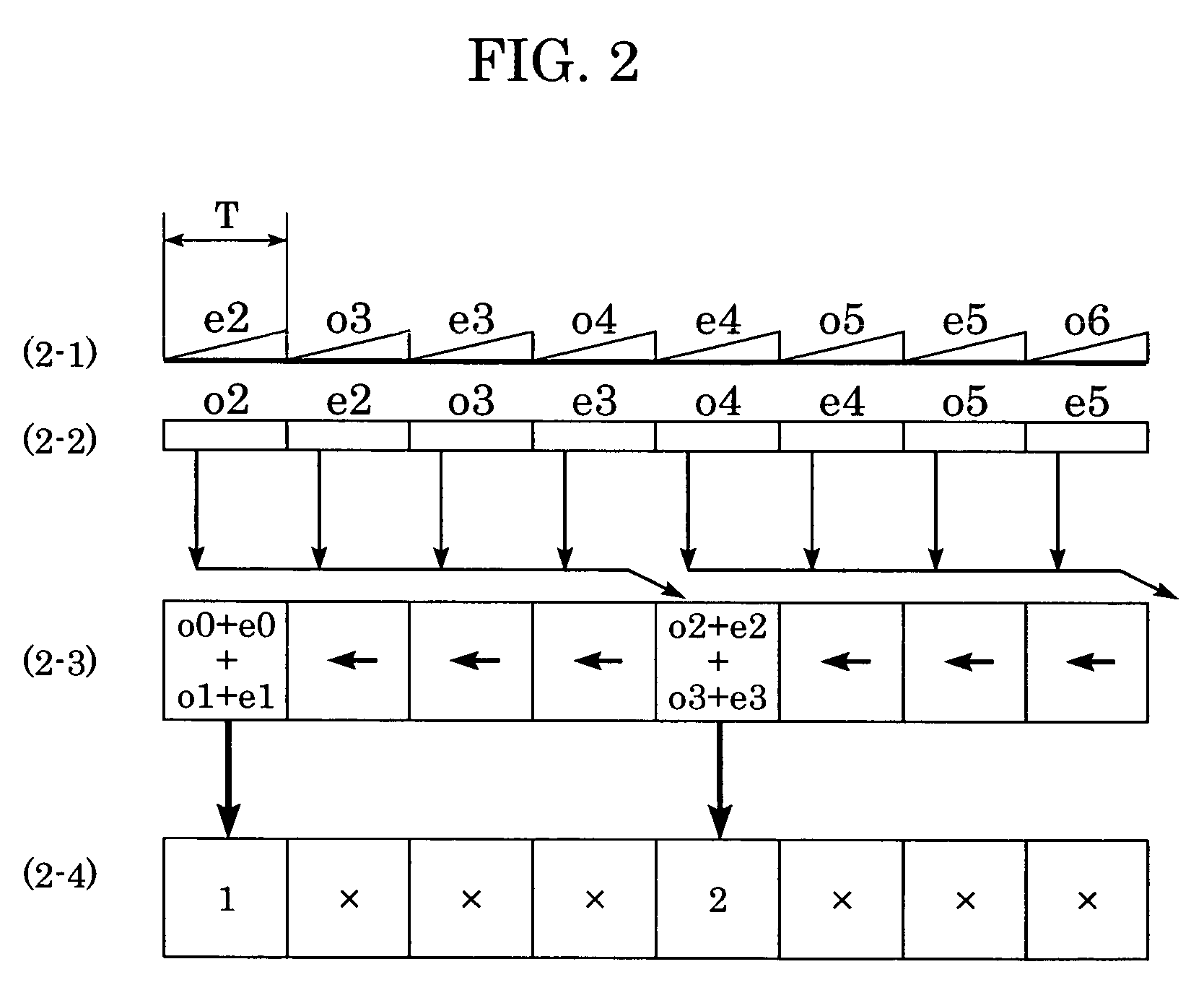Imaging technique performing focusing on plurality of images
a technology of plurality of images and focusing, applied in the field of focusing, can solve the problems of blurred image of a subject, inability to properly capture images by users who are not experienced at camera operations, and inability to capture images properly, so as to prevent the degradation of the focus performance of the autofocus operation
- Summary
- Abstract
- Description
- Claims
- Application Information
AI Technical Summary
Benefits of technology
Problems solved by technology
Method used
Image
Examples
Embodiment Construction
[0022]The embodiments of the present invention are described below with reference to the drawings.
[0023]FIG. 1 shows an example of a digital video camera according to at least one exemplary embodiment of the present invention. A beam (image capture light beam) incident from an imaging lens 11 passes through a diaphragm 13a, and the amount of light is adjusted. The beam then passes through a shutter 12a, and an image is formed in an imaging unit 17. The imaging unit 17 is composed of a two-dimensional image sensor, such as a CCD.
[0024]The imaging lens 11 is composed of a plurality of optical lens groups. These lens groups in whole or in part move along an optical axis 10 with a driving force supplied from an autofocus (AF) driving motor 14a and perform focusing by stopping at a predetermined in-focus position. The AF driving motor 14a is driven by receiving a driving signal from a focus driving unit 14b. Some of the optical lens groups of the imaging lens 11 move along the optical ax...
PUM
 Login to View More
Login to View More Abstract
Description
Claims
Application Information
 Login to View More
Login to View More - R&D
- Intellectual Property
- Life Sciences
- Materials
- Tech Scout
- Unparalleled Data Quality
- Higher Quality Content
- 60% Fewer Hallucinations
Browse by: Latest US Patents, China's latest patents, Technical Efficacy Thesaurus, Application Domain, Technology Topic, Popular Technical Reports.
© 2025 PatSnap. All rights reserved.Legal|Privacy policy|Modern Slavery Act Transparency Statement|Sitemap|About US| Contact US: help@patsnap.com



